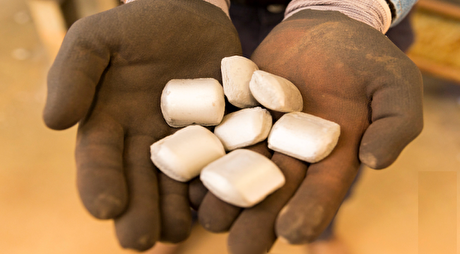
Iran-Armenia Trade Hits Record High
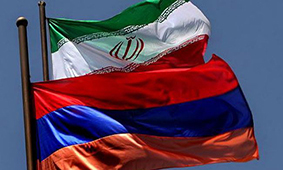
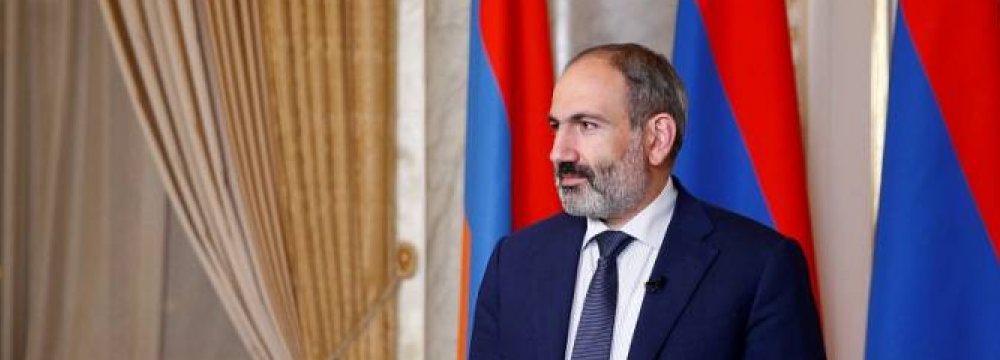
"Iran’s exports to Armenia accounted for $269 million of the total sum. Our main exports included natural gas, petrochemicals, iron and steel, tar, tiles and ceramics, fruit and nuts," Mohsen Rahimi was also quoted as saying by IRNA.
Pashinyan to Visit Tehran
Armenian Prime Minister Nikol Pashinyan is expected to visit Iran today (Feb. 27)—his first official visit to the Islamic Republic.
According to an Armenian expert on Iranian affairs, Armen Israelyan, Pashinyan’s visit is expected to give a new push to development of bilateral relations.
Speaking at a news conference on Monday, the expert said the Armenian government needs to be more active in presenting the country’s business and related legislations to Iranian entrepreneurs, ARKA news agency reported.
"Iranian businessmen should be well aware of Armenian laws, customs duties and other issues of interest," he said.
According to Israelyan, the creation of an electronic platform with the information in Armenian and Farsi languages is an option.
Israelyan said the agreement on free trade zone between the Eurasian Economic Union and Iran, located near the town of Meghri in southern Armenia, along the Iranian border, is beginning to play a bigger role.
“The agreement will have an economic effect only after companies start registering in the free trade zone. If there is no communication, no cooperation, then no economic activity should be expected,” he said.
Israelyan noted that the low level of economic cooperation with Iran is a problem not only for Armenia, but also for other members of the Eurasian Economic Union, which includes Russia, Kazakhstan, Belarus and Kyrgyzstan.
Meghri Free Zone Prospects
Armenia inaugurated a free economic zone in its southernmost city of Meghri along the Iranian border in December 2017.
“The creation of Free Economic Zone in Meghri is important as it is situated on the Iranian border, which will serve as an additional impetus for the intensification of trade-economic relations between the two countries, thus reinforcing the existing cooperation,” Armenia's Former Premier Karen Karapetyan was quoted as saying at the inauguration ceremony.
The zone will embrace a wide framework of spheres, including agriculture, manufacturing industry, trade, cargo shipment and storage economy and tourism, among others, Public Radio of Armenia reported.
Given its geographical position, commercial and logistical capabilities, as well as Armenia’s multi-sector preferential trade regimes, the free zone can become a bridge linking Iran, Eurasian Economic Union and European Union. It is also expected to strengthen economic ties with Iran, Armenpress reported.
Companies operating in Meghri FEZ will be exempt from profit tax, value added tax, excise tax and customs fees, as they only pay income tax.
Armenian officials expect the zone to attract 50-70 companies in the coming years, investing $100-130 million and creating more than 1,500 jobs.
“The launch of Meghri Free Economic Zone will contribute to increasing the trade turnover volumes between Armenia and Iran, exchanging experience with Iranian free economic zones,” said Iran's Ambassador to Armenia Kazem Sajjadi who also attended the inauguration ceremony.
Since Armenia’s borders with both Turkey and Azerbaijan have long been closed due to the Nagorno-Karabakh conflict, Iran is one of the only two conduits for landlocked Armenia to the outside world.
Iran and EEU signed an interim agreement on the formation of a free trade zone in Astana, Kazakhstan, on May 17.
The deal’s main advantage is reduction in import duties and establishment of a transparent trade environment.
Armenia has expressed readiness to help strengthen commercial ties between Iran and Eurasian Economic Union.
Describing the agreement as a first step for the formation of an Iran-EEU free trade zone, Pashinyan noted that Armenia is the only EEU member state that has a land border with Iran.
"The presence of common border and the formation of free trade zone with Iran is an additional impetus for the development of commercial and economic ties," he said.
The Russian Ministry of Industry and Trade has said that a full-fledged agreement on a free trade zone between Iran and Eurasian Economic Union will be concluded by early 2022.
"We are ready to become a practical platform for the establishment of reliable economic and commercial ties between EEU and Iran," Pashinyan said.
No Change in Ties Amid US Sanctions
Following the visit of a US mission to Armenia to brief the southwest Asian country on reimposed sanctions against Iran, Yereven said there is no need to make any changes to economic ties with Iran.
“We don’t see the need to make any change in them. We need not only maintain the good level of these relations, but also to raise them to a new level,” Pashinyan said.
“We need to intensively develop those relations [with Iran] and those relations should be mutually beneficial.”
Armenia imports Iranian natural gas and other fuel. The volume of gas supplies should rise sharply after the ongoing construction of a third power transmission line connecting the two countries is completed this year.
“We are greatly interested in Iranian investments and tourists. In general, we plan to deepen our economic and political relations with Iran. All the preconditions exist for that,” Pashinyan said.


Caterpillar sees US tariff hit of up to $1.5 billion this year

Australia pledges $87M to rescue Trafigura’s Nyrstar smelters in critical minerals push

SAIL Bhilai Steel relies on Danieli proprietary technology to expand plate mill portfolio to higher steel grades

Alba Discloses its Financial Results for the Second Quarter and H1 of 2025
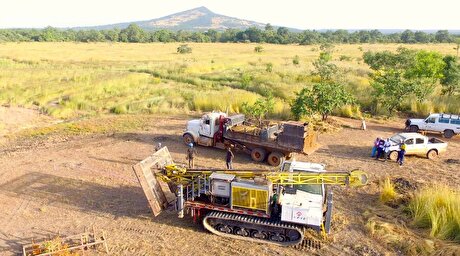
Fortuna rises on improved resource estimate for Senegal gold project
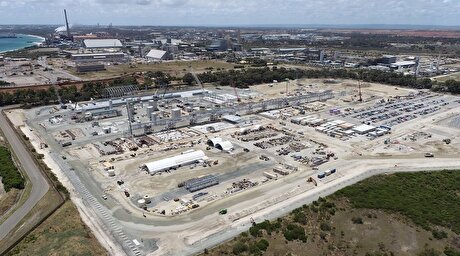
Tianqi Lithium Australia JV says it is prioritizing long-term viability of refinery

Copper price slips as unwinding of tariff trade boosts LME stockpiles

US slaps tariffs on 1-kg, 100-oz gold bars: Financial Times

Fresnillo lifts gold forecast on strong first-half surge

De Beers strikes first kimberlite field in 30 years

Minera Alamos buys Equinox’s Nevada assets for $115M
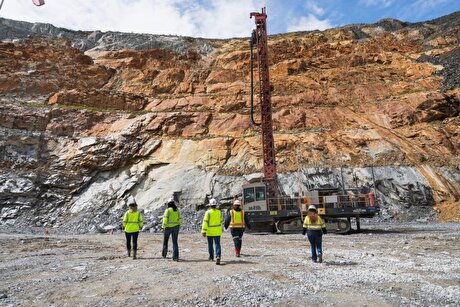
OceanaGold hits new high on strong Q2 results

What’s next for the USGS critical mineral list

South Africa looks to join international diamond marketing push
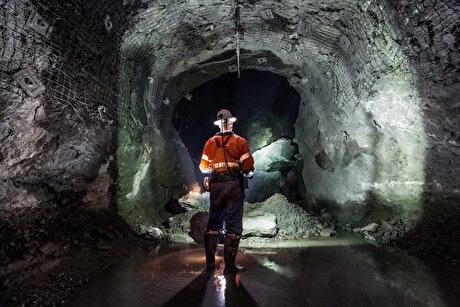
Copper price gains on Chinese demand, Chilean supply risks

Gold exploration spend trending down despite higher prices – S&P Global

A global market based on gold bars shudders on tariff threat
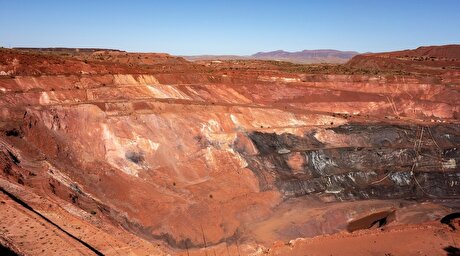
New research reveals source of world’s richest lithium deposits

Century Aluminum to invest $50M in Mt. Holly smelter restart in South Carolina

De Beers strikes first kimberlite field in 30 years

Minera Alamos buys Equinox’s Nevada assets for $115M

OceanaGold hits new high on strong Q2 results

South Africa looks to join international diamond marketing push

Copper price gains on Chinese demand, Chilean supply risks

Gold exploration spend trending down despite higher prices – S&P Global

A global market based on gold bars shudders on tariff threat

Century Aluminum to invest $50M in Mt. Holly smelter restart in South Carolina
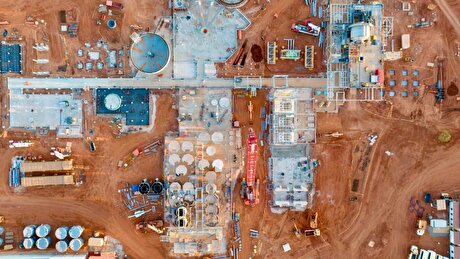
Australia to invest $33 million to boost Liontown’s Kathleen lithium operations
